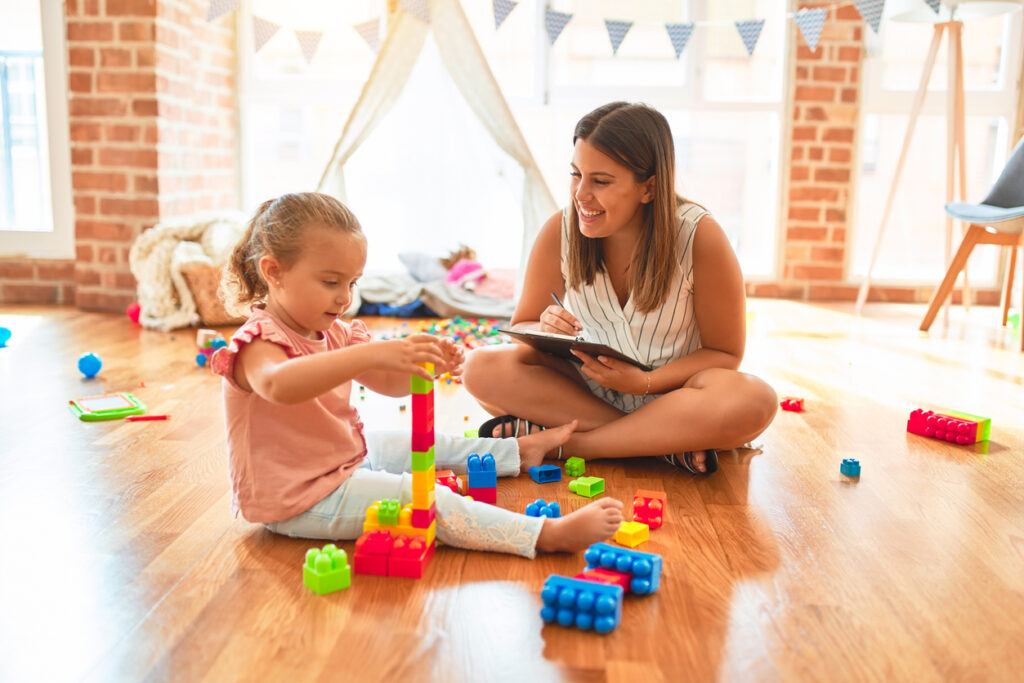Play Therapy at Home: How Parents Can Use Play to Strengthen Emotional Bonds

Play is more than just a way for children to pass the time—it is their primary mode of learning, communication, and emotional expression. While professional play therapy sessions with a trained therapist provide immense benefits, parents can also bring the principles of child-centered play therapy into their own homes to nurture deeper connections with their children.
At Focus Forward Counseling & Consulting, we believe that play is one of the most powerful tools for expressing emotions, fostering emotional development, and strengthening parent-child relationships. By integrating play therapy techniques into daily life, parents can gain insight into their child’s world, support their child in overcoming emotional struggles, and create a safe, nurturing environment where a child feels heard and understood.
If you’re looking for ways to use play therapy at home to teach children emotional resilience and deepen your bond, here’s how to get started.
The Benefits of Play Therapy at Home
Therapeutic play is a proven way to help children process their experiences, work through challenges, and develop critical life skills like problem-solving and emotional regulation. While professional play therapy sessions provide structured guidance, parents can lead the play at home in ways that reinforce their child’s emotional well-being.
The benefits of play therapy at home include:
✔ Strengthening trust and connection between parent and child
✔ Helping children feel safe to express their feelings freely
✔ Supporting emotional development and resilience
✔ Encouraging healthy communication and social skills
✔ Teaching problem-solving and conflict resolution
✔ Providing insight into a child’s emotional world
By integrating play therapy techniques into everyday life, parents create a safe space where their child can openly express emotions, overcome challenges, and feel supported.
How to Lead the Play: Let Your Child Take the Lead
A key principle of child-centered play therapy is allowing the child to take control of the play experience. Rather than directing or structuring every activity, let your child set the pace and determine how they want to engage.
Here’s how to “lead by following” in play therapy at home:
✔ Observe: Watch how your child plays without interrupting. What themes or emotions emerge?
✔ Join in Gently: Mirror their actions or participate when invited.
✔ Resist Directing: Avoid giving instructions or correcting how they play.
✔ Validate Their Emotions: If they express frustration, fear, or sadness in their child’s play, acknowledge those feelings with supportive language.
By allowing your child to take the lead, you create a space where they feel in control, safe, and comfortable sharing their feelings without fear of judgment.
Types of Play to Strengthen Emotional Bonds
There are many types of play that can be used to support their child’s emotional growth at home. The key is choosing activities that align with their needs, interests, and age.
1. Role Playing & Pretend Play
Children often express their emotions and thoughts through role-playing scenarios that reflect real-life experiences. Whether they’re pretending to be a teacher, a doctor, or a superhero, these imaginary roles allow them to process emotions and practice social skills.
How Parents Can Use It:
- Let your child assign roles and follow their lead.
- Use stuffed animals or dolls to teach children about empathy and problem-solving.
- If they act out a difficult experience (like a scary doctor’s visit), use gentle reassurance to help them overcome challenges.
2. Expressive Arts & Storytelling
Art, music, and storytelling are powerful tools for expressing emotions that might be hard to put into words.
How Parents Can Use It:
- Offer drawing or painting materials and ask, “Can you show me how you’re feeling today?”
- Create a “feelings book” where they illustrate different emotions.
- Read books about emotions and ask open-ended questions like, “How do you think the character feels?”
3. Sand Tray & Sensory Play
Inspired by play therapy sessions, sand tray therapy uses miniature figures and a sandbox to create scenes that represent feelings or experiences. Sensory play, such as playing with kinetic sand, water beads, or clay, can also be calming and therapeutic.
How Parents Can Use It:
- Provide figurines and a tray of sand and let them build their own story.
- Ask open-ended questions about what’s happening in their scene.
- Encourage them to use textures to express different emotions (e.g., smooth vs. rough objects).
4. Problem-Solving Games
Board games, puzzles, and interactive activities help children develop problem-solving skills while also reinforcing patience and cooperation.
How Parents Can Use It:
- Choose cooperative board games that require teamwork and communication.
- Play games that encourage turn-taking, which builds frustration tolerance and emotional regulation.
- Praise their efforts rather than focusing solely on winning or losing.
Overcoming Challenges in Play Therapy at Home
Parents may sometimes feel unsure about how to integrate play therapy at home or worry that they’re not “doing it right.” The truth is, there’s no perfect way—what matters most is creating an environment where your child feels safe, supported, and free to express themselves.
Tips for Overcoming Challenges:
✔ Be Patient: Some children may take time to open up through play. Stay consistent and let them lead.
✔ Validate Emotions: If your child expresses anger, sadness, or fear in their child’s play, acknowledge those feelings rather than dismissing them.
✔ Use Play as a Bridge for Communication: If a child struggles to talk about a difficult topic, use play as an indirect way to explore their feelings.
If you ever feel that your child needs additional emotional support, professional play therapy sessions can provide guidance and deeper healing.
Strengthen Your Parent-Child Bond Through Play
At Focus Forward Counseling & Consulting, we believe that play is one of the most powerful ways to support your child’s emotional health and strengthen your parent-child relationships. Whether through structured play therapy sessions or everyday play therapy at home, the connection you build with your child through play is invaluable.
If your child is struggling with emotional challenges, anxiety, or behavioral concerns, our team of compassionate therapists in Alpharetta and Cumming, Georgia is here to help.
Ready to learn more about how play therapy can benefit your child? Schedule a consultation today!
